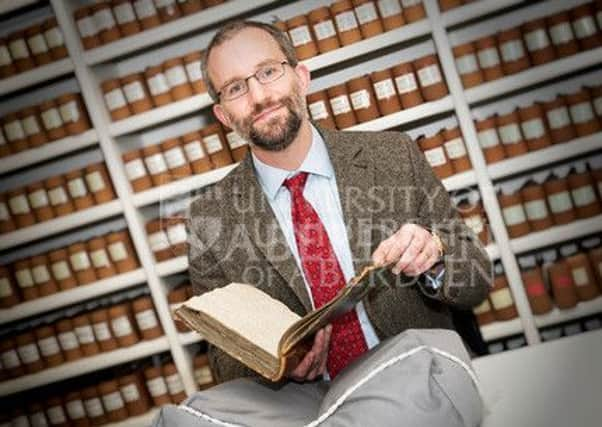Lost medieval records of Aberdeen found after 200 years


Researchers at Aberdeen University have uncovered copied extracts from the missing third volume of the city’s earliest council registers, which cover the period 1398-1511.
Written in “tortuous handwriting”, the papers - which were copied from the original sometime during the mid-1700s - detail a seemingly strained relationship between Aberdeen and James I with the city resisting to support his campaign against Highland chiefs.
Advertisement
Hide AdAdvertisement
Hide AdDr Jackson Armstrong, a lecturer in history at the University, described the find as “extraordinary”.
He said: “To find any trace of the missing burgh records after more than two centuries was unexpected but to find that these extracts offer us a new insight into Aberdeen’s royal connections in this period is extraordinary.”
The papers show that, in 1428, the king arrested several Highland chiefs at Inverness and demanded support of men and the supply of provisions from Aberdeen.
Dr Armstrong said: “It does not appear that this was forthcoming as other sources show Aberdeen and three other towns were fined by the crown for failing to contribute fully.
“This new fragment shows that Aberdeen’s officials received a direct complaint from James I about this incident and recorded it in the missing register.”
Dr Armstrong made the discovery after noticing a reference to ‘very curious extracts from the records of the city of Aberdeen, 1398-1658’ in a catalogue of the medieval holdings of ancient universities and colleges produced in 1932.
He then found the extracts, written by King’s College graduate James Man, in the special collections department at Aberdeen University.
Advertisement
Hide AdAdvertisement
Hide AdTranscribing Man’s papers fell to Dr Edda Frankot, Editorial Research Fellow on the Aberdeen Burgh Records research project and an expert in medieval and early modern script.
“The handwriting was thoroughly frustrating to read and was probably not intended for anyone to see but Man himself,” Dr Frankot said.